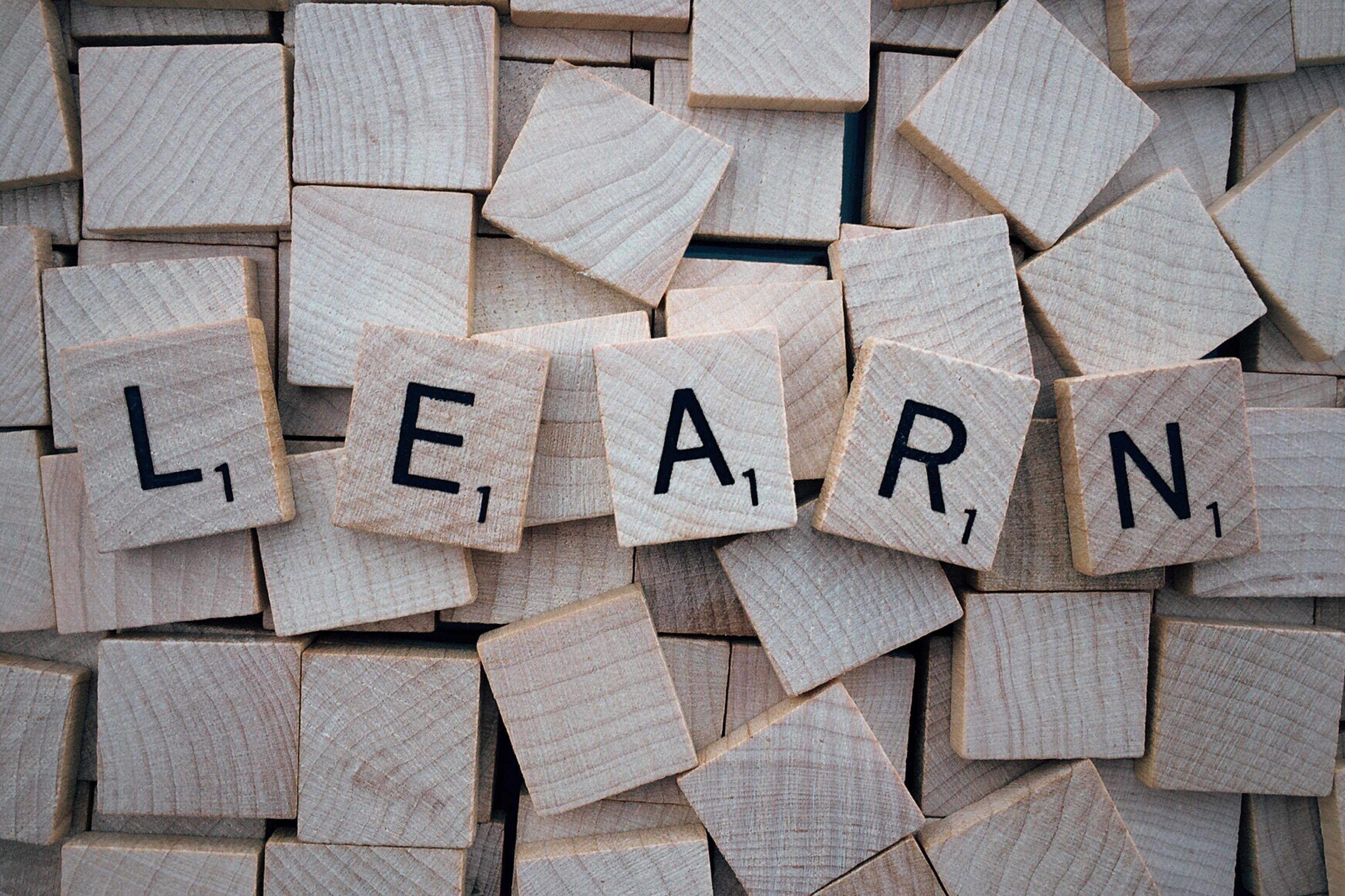#0003 - The Agile Developer: Mastering the Art of Lifelong Learning in Software Development
 Sachin Raverkar
Sachin Raverkar
The Ever-Expanding Horizon of Knowledge
In the fast-paced world of software development, learning is not just a necessity; it’s the cornerstone of progress. The landscape of technology is ever-shifting, and as developers, the ability to adapt and evolve is not just advantageous; it’s imperative.
Welcome to "The Agile Developer," a comprehensive guidebook that transcends traditional learning paradigms. Here, we embark on a transformative journey, exploring not just how to learn, but how to learn effectively, innovate, and continuously improve.
In the wise words of Mahatma Gandhi:
Live as if you were to die tomorrow. Learn as if you were to live forever.
This encapsulates the spirit of our exploration.
Learning is not a destination; it’s a lifelong odyssey. From ancient sages to modern visionaries, wisdom has always been the beacon illuminating the path of progress.
Together, we will delve into the methodologies, philosophies, and timeless teachings of gurus from diverse fields, intertwining their insights with the intricate world of software development.
The Art and Science of Learning
1. Understanding the Learning Mindset
Action-Packed Advice: Embracing a growth mindset is foundational. Believe that your abilities and intelligence can be developed with dedication and hard work. Understand that challenges are opportunities to learn. Whenever you face a difficult problem, instead of seeing it as a setback, view it as a chance to enhance your skills. Every bug you fix, and every error you resolve, contributes to your growth.
Remember the words of Carol Dweck:
Becoming is better than being.
Embrace the journey of constant improvement.
Recommended Resources:
Book: “Mindset: The New Psychology of Success” by Carol S. Dweck - A deep dive into the concept of growth mindset and its impact on learning and achievement.
TED Talk: Carol Dweck: The Power of Believing That You Can Improve - Dweck’s TED Talk provides valuable insights into the growth mindset.
2. Effective Learning Strategies
Action-Packed Advice: Understanding effective learning strategies is akin to having a powerful toolkit. Active learning, where you engage with the material actively rather than passively absorbing it, significantly enhances retention.
Techniques like spaced repetition, where you review information at increasing intervals, strengthen memory. Interleaved learning, mixing different topics or skills during study sessions, improves overall understanding.
Implementing these strategies turns learning from a passive task into an engaging, memorable experience.
Recommended Resources:
Book: “Make It Stick: The Science of Successful Learning” by Peter C. Brown - Explores research-based learning strategies and how to apply them effectively.
Online Course: Coursera’s “Learning How to Learn” - A course that explores various techniques for effective learning.
3. The Role of Unlearning
Action-Packed Advice: Unlearning is akin to decluttering your mind. Just as a cluttered desk hampers productivity, obsolete knowledge and practices hinder innovation.
Embrace Bruce Lee’s wisdom:
It's not the daily increase but daily decrease.
Hack away at the unessential. Identify outdated methods, be it coding techniques or problem-solving approaches, and replace them with efficient, modern ones.
Unlearning is not a sign of weakness but a mark of maturity in your learning journey.
Recommended Resources:
Book: “What Got You Here Won't Get You There” by Marshall Goldsmith - Explores the importance of unlearning behaviours that hinder personal and professional growth.
Article: Harvard Business Review’s “The Decision-Making Behaviors of Great Leaders” - Discusses the importance of unlearning old decision-making patterns.
4. Cultivating Creativity
Action-Packed Advice: Creativity is the cornerstone of innovation.
Picasso’s words:
Every act of creation is first an act of destruction.
Illuminate the creative process. Embrace different forms of art, literature, and music. Engage with creative pursuits unrelated to coding.
These experiences provide unique perspectives and fuel your imagination. Creative solutions often emerge from the fusion of unrelated concepts.
Break barriers, and think beyond the conventional, and in the process, you’ll unearth innovative solutions to complex problems.
Recommended Resources:
Book: “The Artist's Way” by Julia Cameron - A guide to rediscovering your creativity, providing exercises and insights for nurturing creative thinking.
TED Talk: Ken Robinson: Do Schools Kill Creativity? - Robinson’s talk challenges traditional education systems and encourages nurturing creativity.
5. Learning from Gurus
Action-Packed Advice: Learning from gurus is akin to standing on the shoulders of giants. Leonardo da Vinci's insatiable curiosity, Marie Curie’s perseverance, or Steve Jobs' vision, each guru illuminates a unique aspect of learning and innovation.
Read biographies, watch documentaries, and dive into the lives of these luminaries. Understand their struggles, failures, and triumphs. Extract principles from their journeys and apply them in your context.
Gurus are not just historical figures; they are mentors offering timeless wisdom.
Recommended Resources:
Book: “Leonardo da Vinci” by Walter Isaacson - A comprehensive biography that delves into da Vinci's creative genius and learning philosophy.
Documentary: “Finding Joe” - Explores the hero’s journey concept and how ancient myths and legends apply to modern life and learning.
6. Embracing Failure
Action-Packed Advice: Failure is not an endpoint; it’s a turning point.
Thomas Edison’s quote:
I have not failed. I've just found 10,000 ways that won't work.
It encapsulates the spirit of learning from failures. When your code fails to run or your project encounters a setback, analyze the reasons.
Mistakes are stepping stones to mastery. Embrace failures with curiosity.
What went wrong?
How can it be improved?
Each failure is a valuable lesson, guiding you towards more robust solutions.
Recommended Resources:
Book: “Black Box Thinking” by Matthew Syed - Explores the concept of learning from failures, emphasizing the importance of open-mindedness in the face of setbacks.
TED Talk: Elizabeth Gilbert: Success, Failure and the Drive to Keep Creating - Gilbert's talk offers a fresh perspective on success and failure in the creative process.
7. Balancing Theory and Practice
Action-Packed Advice: Theoretical knowledge without practical application is like a map without a journey. Conversely, practical skills without a theoretical foundation lack depth. Balance is key. Understand the theories behind algorithms and data structures, then implement them in coding challenges. Theoretical knowledge provides frameworks; practical application hones your problem-solving skills.
As Steve Jobs emphasized:
It's technology married with liberal arts, married with humanities, that yields us the result that makes our heart sing.
Merge theory and practice for holistic learning.
Recommended Resources:
Book: “The Pragmatic Programmer” by Andrew Hunt and David Thomas - Offers practical advice on balancing theory and practice in software development.
Online Course: edX’s “Introduction to Computer Science and Programming Using Python” - Provides a balance of theoretical concepts and hands-on Python coding exercises.
8. Mentorship and Collaborative Learning
Action-Packed Advice: Mentorship accelerates your learning journey. Seek mentors in coding communities or within your workplace. Engage in collaborative projects where you can learn from peers. The exchange of ideas sparks creativity.
Oprah Winfrey once said:
A mentor is someone who allows you to see the hope inside yourself.
This underscores the transformative power of mentorship.
Similarly, be a mentor to others. Teaching reinforces your understanding and provides fresh perspectives on familiar concepts.
Recommended Resources:
Book: “The Art of Mentoring: Lead, Follow and Get Out of the Way” by Shirley Peddy - Offers insights into effective mentorship techniques and how mentorship benefits both parties.
Online Platform: Meetup - Join coding and tech-related meetups to find mentors and like-minded peers for collaborative learning.
9. Mindfulness in Learning
Action-Packed Advice: Cultivate mindfulness in your learning journey. Embrace change and uncertainty.
Jon Kabat-Zinn’s wisdom:
You can't stop the waves, but you can learn to surf.
It highlights the importance of adapting to the ever-changing tech landscape.
Be present in your coding sessions. Focus on the problem at hand.
Mindfulness enhances your concentration and problem-solving abilities. In the fast-paced world of technology, mindfulness is the anchor that keeps you steady amidst the storm of constant innovation.
Recommended Resources:
Book: “Wherever You Go, There You Are” by Jon Kabat-Zinn - A guide to mindfulness meditation, emphasizing the importance of being present in every moment.
App: Headspace - A popular meditation app that offers mindfulness exercises tailored for various aspects of life, including work-related stress.
10. Harnessing the Power of Consistency
Action-Packed Advice: Consistency is the bedrock of mastery.
Aristotle’s timeless wisdom:
We are what we repeatedly do. Excellence, then, is not an act, but a habit.
It encapsulates the essence of consistency.
Dedicate regular, uninterrupted time to your learning journey. Whether it's an hour every morning or a focused coding session every evening, consistency compounds your efforts.
Small, consistent actions accumulate into profound expertise over time. Make learning a habit, not a task. It becomes a part of who you are, propelling you towards mastery of your craft.
Recommended Resources:
Book: “The Compound Effect” by Darren Hardy - Explores the power of consistent, small actions and their impact on achieving significant goals over time.
Podcast: The Tim Ferriss Show - Features interviews with world-class performers and delves into their habits and routines, emphasizing the importance of consistency.
Incorporating these principles into your learning journey transforms it into a rich, fulfilling experience.
Remember, every line of code you write, every bug you fix, and every concept you grasp is a step toward mastery.
Embrace the art and science of learning, and let your journey be both transformative and exhilarating. Happy coding!
Next Steps: Embrace Your Agile Learning Journey
1. Set Learning Goals
Action-Packed Advice:
Be Specific: Define clear, specific goals. Instead of "Learn Python," aim for "Build a weather app using Python and API integration."
Break It Down: Divide large goals into smaller tasks. Achieving these mini-goals creates a sense of accomplishment.
SMART Goals: Make goals Specific, Measurable, Achievable, Relevant, and Time-bound.
Visualize Success: Imagine yourself using the skill you're learning. Visualization enhances motivation.
Recommended Resources:
Book: “Atomic Habits” by James Clear - Offers practical methods for habit formation, essential for consistent learning.
YouTube Channel: TED Talks - Various TED Talks on goal setting, motivation, and learning techniques.
Online Platform: Coursera - Courses like “Learning How to Learn” provide valuable insights into effective learning strategies.
2. Create a Learning Ritual
Action-Packed Advice:
Designate Time: Allocate a specific time each day/week dedicated solely to learning.
Eliminate Distractions: Create a focused learning environment. Turn off notifications and find a quiet space. Use Pomodoro technique.
Stay Consistent: Stick to your schedule. Consistency is key to forming a learning habit.
Reward System: Reward yourself after learning sessions to reinforce positive behaviour.
Recommended Resources:
Book: “Deep Work” by Cal Newport - Explores the benefits of undistracted, focused work and how to cultivate deep learning.
YouTube Channel: Thomas Frank - Offers practical tips on productivity, time management, and effective learning techniques.
Blog: James Clear’s Blog - Insights on habit formation and productivity.
3. Join Communities
Action-Packed Advice:
Choose the Right Platforms: Select communities relevant to your interests (GitHub, Stack Overflow, Reddit communities).
Participate Actively: Engage in discussions, ask questions, and contribute your knowledge.
Networking: Connect with professionals. LinkedIn is a powerful tool for professional networking.
Recommended Resources:
Book: “Crucial Conversations” by Al Switzler, Joseph Grenny, and Ron McMillan - Essential reading for effective communication in professional settings.
YouTube Channel: Academind - Offers tutorials and insights, fostering a sense of community among developers.
Online Communities: GitHub, Reddit (subreddits like r/learnprogramming), Stack Overflow - Active communities for developers to engage and learn from each other.
4. Document Your Learning
Action-Packed Advice:
Notebook or Digital Tools: Maintain a learning journal. Jot down concepts, challenges faced, and solutions.
Blog/Vlog: Consider creating a blog or vlog detailing your learning journey. Teaching others solidifies your knowledge.
Mind Maps: Visualize complex topics using mind maps. Tools like XMind or MindMeister can be invaluable.
Recommended Resources:
Tool: Notion - A versatile tool for note-taking, organizing ideas, and setting reminders.
Blog: HashNode - A platform to share your insights. Writing regularly enhances your understanding of the subject matter.
YouTube Channel: The Net Ninja - Offers tutorials and encourages viewers to code along, fostering active learning.
5. Teach Others
Action-Packed Advice:
Start Small: Teach basics to beginners. Create simple tutorials or host coding sessions.
Feedback Loop: Encourage feedback from learners. Constructive criticism aids improvement.
Public Speaking: Present at local meetups or conferences. Overcoming stage fright boosts confidence.
Recommended Resources:
Book: “The Art of Possibility” by Rosamund Stone Zander and Benjamin Zander - Offers insights on transformative leadership, essential for effective teaching.
Online Platform: Udemy Instructor Academy - Provides resources and guidance on creating effective online courses.
Blog: Teachable Blog - Articles on effective teaching methods and engaging course creation.
6. Stay Curious
Action-Packed Advice:
Explore Diverse Topics: Step out of your comfort zone. Learn a new language, explore AI, or delve into game development.
Read Widely: Books, articles, and research papers broaden your horizons. Subscribe to journals and tech magazines.
Attend Workshops/Seminars: Participate in workshops or seminars, even on unrelated topics. Unique perspectives enrich creativity.
Recommended Resources:
Book: “The Innovator's Dilemma” by Clayton M. Christensen - A deep dive into disruptive innovation and how curiosity fuels it.
YouTube Channel: Vsauce - Explores a wide array of intriguing topics, stimulating curiosity.
Online Learning Platform: Khan Academy - Offers free courses on various subjects, encouraging continuous learning.
7. Feedback Loop
Action-Packed Advice:
Seek Feedback Actively: Regularly request feedback on your code/projects from peers and experts.
Code Reviews: Participate in and conduct code reviews. Learning from others’ source code is invaluable.
Iterative Improvement: Implement feedback immediately. Iterative improvements lead to mastery.
Recommended Resources:
Book: “The Lean Startup” by Eric Ries - Emphasizes the importance of rapid feedback and iterative development in startups, applicable to software development.
YouTube Channel: Traversy Media - Provides practical tutorials with a focus on best practices and coding standards.
Online Platform: Pluralsight - Offers courses on effective code reviews and incorporating feedback for improvement.
8. Continual Iteration
Action-Packed Advice:
Stay Updated: Regularly check for updates in programming languages, frameworks, and tools.
Version Control: Use Git or other version control systems diligently. Track changes systematically.
Personal Projects: Undertake personal coding projects to experiment with new techniques and tools.
Recommended Resources:
Platform: GitHub - Collaborative version control platform. Explore open-source projects and contribute.
YouTube Channel: The Coding Train - Provides creative coding tutorials, inspiring continual experimentation and iteration.
Blog: Smashing Magazine - Offers insights into the latest web development trends and best practices.
9. Experiment
Action-Packed Advice:
Hackathons: Participate in hackathons. These intense coding sessions foster quick thinking and problem-solving.
Open Source Contributions: Contribute to open-source projects. Collaboration with experienced developers hones your skills.
Prototype Development: Rapidly prototype new ideas. Fail fast, learn faster.
Recommended Resources:
Platform: Hackerrank - Offers coding challenges and competitions, perfect for experimenting with new algorithms and techniques.
Online Community: GitHub’s Open Source Guides - Provides comprehensive resources on contributing to open-source projects effectively.
YouTube Channel: The Net Ninja - Offers tutorials
Empowering the Agile Developer
As we conclude this enlightening odyssey, remember, dear developer, your learning journey doesn’t end here; it evolves.
Learning is not a burden; it’s a superpower.
By adopting the mindset of an Agile Developer, you become not just a consumer of knowledge but a creator, an innovator, and a beacon of progress in the ever-changing realm of technology.
In the words of Albert Einstein:
Once you stop learning, you start dying.
Let your learning be not just a task but a passion, an adventure that shapes not just your skills but your character.
The Agile Developer doesn’t fear change; they embrace it.
They don’t fear failure; they learn from it.
They don’t fear the unknown; they explore it.

Subscribe to my newsletter
Read articles from Sachin Raverkar directly inside your inbox. Subscribe to the newsletter, and don't miss out.
Written by

Sachin Raverkar
Sachin Raverkar
I am a seasoned software professional with over two decades of experience in the dynamic world of SaaS product development. My journey in the software industry has seen me tackle a wide range of challenges, from crafting scalable and robust code to leading teams in the delivery of innovative software solutions. If you're a fellow Hashnode.com enthusiast, let's connect and continue the conversation. Feel free to connect with me on Hashnode to stay updated on my latest articles and join in the discussions. I'm always eager to hear your thoughts and insights. Don't forget to leave comments on my articles to share your feedback, ideas, or even just to say hello! Your engagement is what makes this journey truly enriching. Let's inspire each other through the power of words and ideas. To make sure you never miss any of my future articles, click the 'Follow' button on my Hashnode profile. Together, we can explore the ever-evolving landscape of technology, creativity, and everything in between. Connect with me on Hashnode here: https://hashnode.com/@sagaofsilence. Looking forward to connecting, engaging, and growing together on Hashnode!